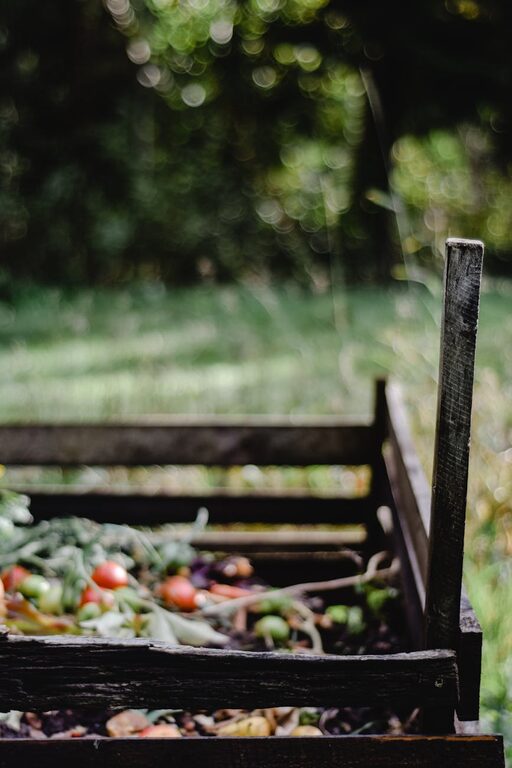Composting is an excellent way to reduce waste and create nutrient-rich soil for your garden. If you’re new to composting, starting can seem overwhelming, but it doesn’t have to be complicated. With a few basic tips and some patience, you can successfully compost at home and enjoy the benefits of healthier plants and less landfill waste. In this guide, we’ll walk you through everything you need to know to get started.
What Is Composting?
Composting is the natural process of recycling organic materials, such as food scraps and yard waste, into a dark, crumbly substance called compost. This compost enriches soil, helping plants grow strong and healthy. Instead of throwing food scraps into the trash, composting allows you to turn them into valuable nutrients for your garden.
Why Compost at Home?
– Reduce landfill waste: Food scraps and yard trimmings make up a large part of household waste.
– Improve soil quality: Compost adds essential nutrients, improving soil texture and moisture retention.
– Save money: Rich compost decreases the need for chemical fertilizers.
– Help the environment: Composting reduces greenhouse gas emissions from landfills.
Getting Started: What You Need
Choose Your Composting Method
There are different ways to compost at home. Pick one that fits your space and lifestyle:
– Compost bin: Enclosed container to hold your compost. Great for yards.
– Compost pile: Simply heap materials in a corner of your garden.
– Tumbler: A rotating drum that makes turning compost easier.
– Vermicomposting: Using worms to break down food scraps, ideal for indoors or small spaces.
Find a Good Spot
Choose a well-drained, shaded spot outside for your compost bin or pile. If using a tumbler, keep it accessible and level.
Gather Materials
To create balanced compost, you need two types of materials:
– Greens: Nitrogen-rich items like fruit and vegetable scraps, coffee grounds, grass clippings.
– Browns: Carbon-rich materials like dry leaves, straw, paper, cardboard.
A good rule of thumb is to use about three parts browns to one part greens.
Beginner Tips for Successful Composting
1. Start Small
If you’re new to composting, start with kitchen scraps only or small amounts of yard waste. It’s easier to manage and less intimidating.
2. Chop or Shred Materials
Breaking up large items speeds up decomposition. Chop vegetable scraps and shred leaves before adding them to compost.
3. Maintain Moisture
Compost should be as moist as a wrung-out sponge. Water dry piles or add drier materials if it’s too wet.
4. Turn Your Compost Regularly
Mixing your compost every week or two helps aerate it and speeds up decomposition. Use a garden fork or compost aerator tool.
5. Avoid Adding Problematic Items
Don’t add:
– Meat, fish, or dairy (attract pests and cause odors)
– Diseased plants or weeds with seed heads
– Pet waste (can contain harmful pathogens)
6. Be Patient
Composting takes time—anywhere from a few weeks to several months depending on conditions. Don’t worry if your pile isn’t breaking down immediately.
7. Use Finished Compost Properly
Your compost is ready when it looks dark, crumbly, and smells earthy. Use it as mulch, mix it into garden soil, or add to potted plants.
Troubleshooting Common Issues
| Problem | Cause | Solution |
|—————–|——————————–|———————————|
| Smelly compost | Too much green / wet pile | Add browns, turn pile |
| Slow decomposition | Not enough greens or moisture | Add kitchen scraps or water |
| Pests or rodents | Food waste like meat or dairy | Remove these items, cover scraps |
| Compost too dry | Lack of moisture | Water pile |
Tips for Every Season
– Spring & summer: Compost piles decompose fastest; keep turning regularly.
– Fall: Add lots of fallen leaves; chop them for faster breakdown.
– Winter: Composting slows down; use a bin with a lid to retain heat.
Final Thoughts
Composting at home is a rewarding and eco-friendly practice anyone can do. Start simple, keep a balanced mix of materials, and be patient as nature works its magic. Over time, you’ll not only reduce your waste but also improve your garden’s health with rich, homemade compost. Happy composting!

